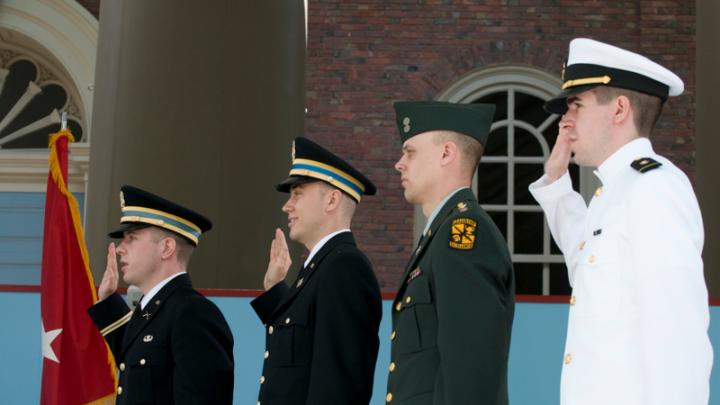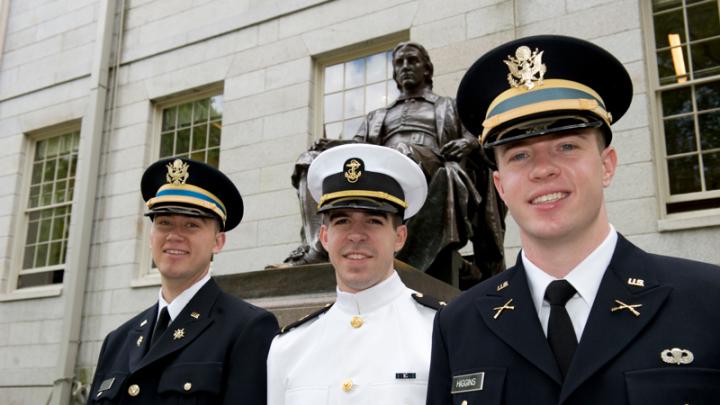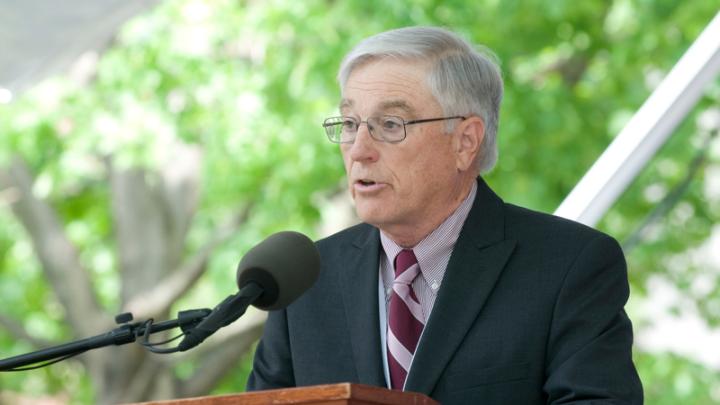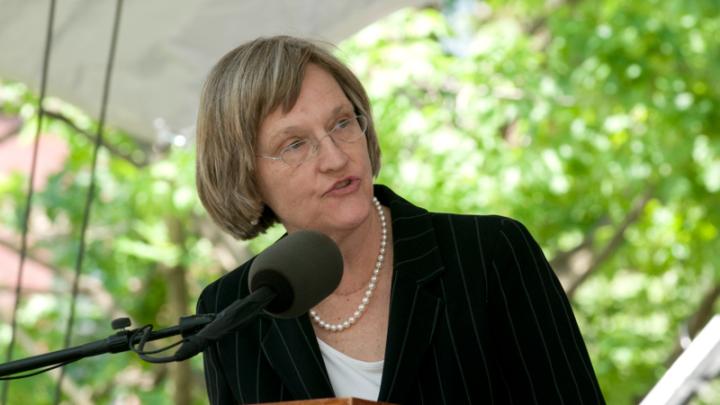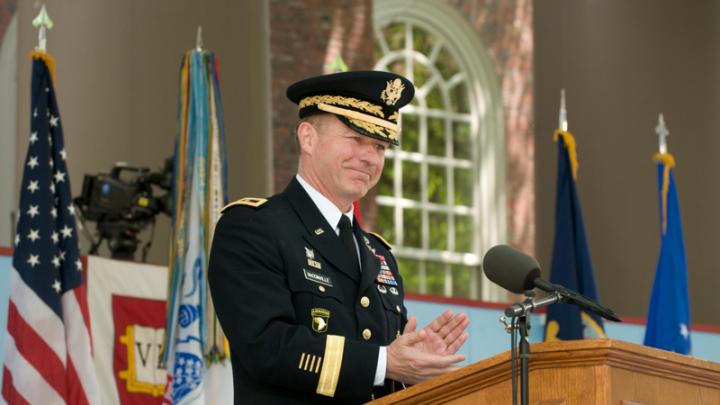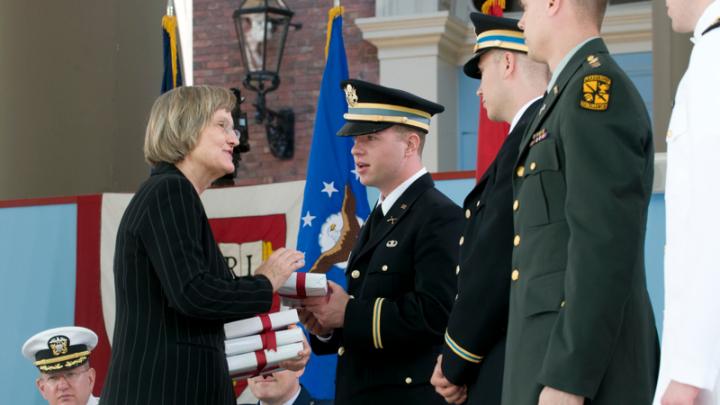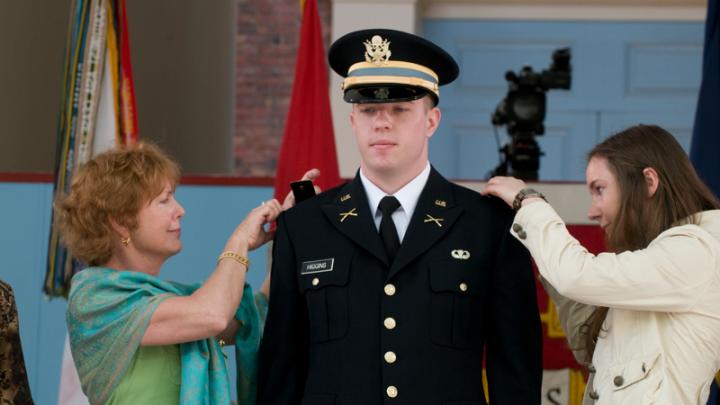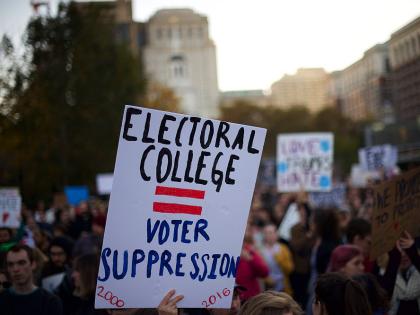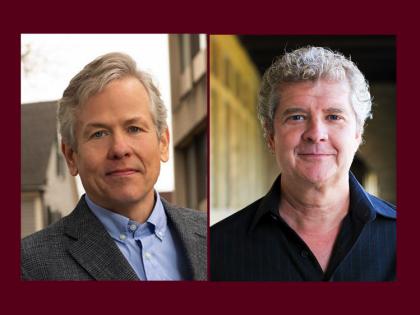Before proud parents, friends, and a contingent of alumni veterans, four new “Harvard soldier scholars,” in the words of President Drew Faust, participated in the annual commissioning ceremony in Tercentenary Theatre on Wednesday morning, May 25—the first since the announcement that the Naval Reserve Officers’ Training Corps would return to campus after the repeal of the “Don’t Ask, Don’t Tell” policy. President Faust alluded to that significant change when she told the new officers, “I hope that your place in a long and newly invigorated Harvard tradition of military service and sacrifice supports and inspires you in the months and years to come.”
Commissioned as second lieutenants in the U.S. Army were:
- Christopher W. Higgins ’11, of Winthrop House and East Setauket, New York, a social studies concentrator with a language citation in Chinese. The recipient of Gates and Fulbright scholarships, he will pursue a master of philosophy degree at the University of Cambridge next year before reporting to Fort Benning, Georgia, to complete the Infantry Basic Officer Leadership Course. (Higgins’s volunteer work in Africa was described in “Immersed in Africa,” this magazine’s November-December 2009 cover story.)
- Aaron R. Scherer ’11, of Dunster House and Dover, Ohio, a government concentrator with a secondary field in Spanish. He will join the military intelligence corps, beginning with studies at Fort Huachuca, Arizona.
Commissioned as an ensign in the U.S. Navy was:
- James D. Reach ’11, of Cabot House and Lititz, Pennsylvania, an economics concentrator with a language citation in Chinese. He has been assigned to the Naval Aviation Schools Command as a student naval aviator in Pensacola, Florida.
Army ROTC cadet Michael G. Schoenen, of Revere, Massachusetts, will receive a master of liberal arts degree with a concentration in government this fall. He will be commissioned at that time, joining the Medical Service Corps; after completing the corps’ basic officer leadership course, he will be assigned to the 399th Combat Support Hospital at Fort Devens, in Massachusetts.
In her address, President Faust—a Civil War historian—reminded her audience that, 150 years earlier, the new officers’ predecessors “faced national upheaval and a threat to the future of the republic that would cause more than 1300 Harvard alumni to take up arms.” Charles Russell Lowell, A.B. 1854, who would be killed in the war, articulated a notion of service, she said, “as the responsibility of ‘decent men’ called to engage in a conflict about basic principles of humanity. Lowell “was willing to risk and ultimately to sacrifice his life to try to ensure a better world—one in which slavery would perish and democracy…could survive. And he recognized the obligation of those who had received the privilege of education to make their contribution to the greater good.”
As her brief history lesson demonstrated, Americans today “are not the first to live in an era of peril and crisis,” Faust noted. “With our country involved in conflicts at three sites around the globe,” she told the cadets, “you as military officers have chosen to face very difficult challenges and to assume grave responsibilities. I hope that the knowledge, the judgment, and the habits of mind that you have developed here during these past four years will serve as a valuable resource…. I thank you for your service.”
